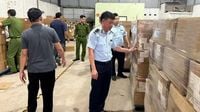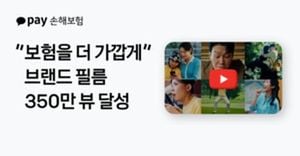On April 25, 2025, authorities in Bac Ninh province, Vietnam, conducted a surprise raid on the Vietnam Denger International Technology Corporation, uncovering a staggering 25 tons of undocumented vitamin and collagen products. The operation was led by Market Management Team No. 3 in collaboration with the Economic Police Department of Bac Ninh province. The warehouse, located in Tu Son city, was under the management of Wang Chao, a 1991-born Chinese national.
During the inspection, officials discovered over 212,000 health supplement products, predominantly vitamins, collagen, and glucosamine, all bearing English labels. The estimated value of the seized goods exceeds 20 billion VND. Notably, Director Wang Chao was unable to present any documentation or invoices to validate the legality of the shipment, raising serious concerns about the origin of these products.
Established only in March 2025, the Vietnam Denger International Technology Corporation had quickly amassed a significant inventory of questionable goods. This incident is part of a troubling trend in Vietnam, where the sale of health supplements and functional foods with unclear origins is becoming increasingly prevalent. Experts warn that such products, particularly vitamins and collagen, are often exploited to introduce counterfeit or substandard goods into the market, posing a direct threat to public health.
In recent months, the Investigation Police Agency of the Ministry of Public Security has dismantled several large-scale operations involving counterfeit health products, seizing approximately 100 tons of various functional foods aimed at vulnerable demographics, including the elderly and children. These products are marketed with enticing claims, such as enhancing health and alleviating pain, which can easily mislead consumers.
Authorities have observed that offenders frequently employ sophisticated tactics to evade detection. Many counterfeit products are manufactured in unsanitary conditions, lacking quality control measures, and often use misleading packaging that falsely indicates foreign origins. In some cases, these products are falsely labeled as "imported from Japan" or "imported from the USA," creating a false sense of trust among consumers.
For instance, the recent raid revealed that many of the health supplements were marketed as being imported from the United States and Europe, but in reality, they were primarily sourced from China and other unregulated markets. Alarmingly, many of these products contain active ingredients that fall below 30% of what is claimed on their labels.
The implications of these counterfeit goods extend beyond individual health risks. The proliferation of substandard products undermines the credibility of legitimate businesses and poses significant challenges for regulatory authorities. As these counterfeit operations become more sophisticated, they have made it increasingly difficult for law enforcement to maintain control over the market.
In light of these developments, authorities are calling for a more robust regulatory framework to manage the production, distribution, and sale of health supplements. They emphasize the need for enhanced inspection and monitoring processes at production sites, warehouses, and online sales platforms. This comprehensive approach is essential to combat the growing threat of counterfeit goods and safeguard consumer health.
Furthermore, public awareness campaigns are crucial in educating consumers about the risks associated with counterfeit health products. Vulnerable groups, such as the elderly and those with pre-existing health conditions, are particularly susceptible to misleading advertisements that promote dubious health benefits.
As the situation evolves, the Ministry of Public Security and other regulatory bodies are committed to intensifying their efforts against the counterfeit goods trade. The recent findings underscore the urgent need for coordinated action to protect consumers and ensure that only safe, high-quality products are available in the marketplace.
In conclusion, the increasing prevalence of counterfeit health supplements in Vietnam poses a significant risk to public health and consumer rights. It is imperative for both regulatory authorities and consumers to remain vigilant in the face of this growing threat. With proper oversight and public awareness, it is possible to mitigate the impact of these dangerous products and promote a safer marketplace for all.




